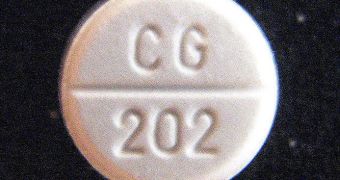A new investigation shows that children who suffer from attention deficit hyperactivity disorder (ADHD) may be at even higher risk than their peers to experience negative symptoms from not getting enough sleep every night.
While losing sleep hours has been proven to be detrimental for all age group, those with ADHD may exhibit even less attention than normal if they lose as little as one hour of sleep every night for a week.
Scientists in charge of the new investigation say that losing even these moderate amounts of sleep for six consecutive days causes noticeable changes in the brain of children with ADHD, as well as their neurobehavioral functioning.
In a paper detailing the findings, which appears in the latest issue of the esteemed scientific journal Sleep, it has been proven that this has a direct negative impact on academic performances.
The study, which was carried out on children with ADHD and healthy peers, demonstrated that those who lost 55 minutes of sleep per night for six days exhibited deteriorating performances at the end of the trials.
The test participants reported more instances of inattention, omission and depressed reaction time than they would normally have, say the investigators, quoted by PsychCentral.
Findings such as these are very worrying, considering the ADHD is one of the most common childhood problems. The US National Institute of Mental Health (NIMH) counts inattention, hyperactivity and impulsivity among the most often encountered symptoms.
“Moderate sleep restriction leads to a detectable negative impact on the neurobehavioral functioning of children with ADHD and healthy controls, leading to a clinical level of impairment in children with ADHD,” explains scientist Reut Gruber, PhD.
She was the principal investigator on the new research, and also the lead author of the journal entry.
The new study was carried out on 43 children with an average age of 9. Eleven of them had been previously diagnosed with the condition, whereas 32 acted as healthy control subjects.
“The reduction in sleep duration in our study was modest and similar to the sleep deprivation that might occur in daily life,” Gruber says.
“Thus, even small changes in dinner time, computer time, or staying up to do homework could result in poorer neurobehavioral functioning the following day and affect sustained attention and vigilance, which are essential for optimal academic performance,” she adds.
“An important implication of the present study is that investments in programs that aim to decrease sleep deprivation may lead to improvements in neurobehavioral functioning and academic performance,” the expert concludes.

 14 DAY TRIAL //
14 DAY TRIAL //